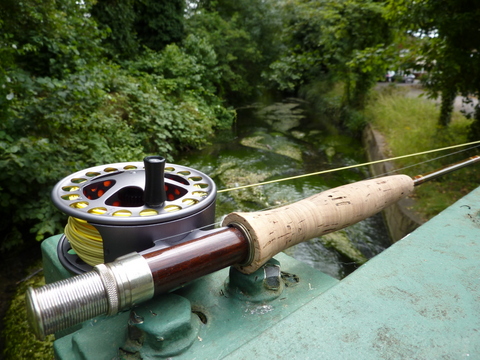The River Wandle has a long and illustrious history as a chalkstream fishery.
Until the end of the 19th century it was seen as one of the world’s great chalkstreams. Nelson is said to have loved the river so much that he bought an estate at Merton for his mistress Emma Hamilton, and may even have fished the Wandle in the company of Sir William Hamilton before his death at Trafalgar.
William Morris stocked his stretch of the river with perch from the upper Thames, so that he’d never be far from his favourite fishy delicacy.
And between 1868 and 1881, Frederic Halford learned the art of dry fly fishing for finicky clear-water trout from the Wandle Valley locals – before taking the Carshalton Dodge away with him to the Test, Itchen and all points west.
In the end, the Wandle tradition of dry fly fishing became a global technique and sporting code. So it’s especially ironic that, by the 1960s, the river where it all began had been engulfed by the urban sprawl of South London, and was officially classified as a sewer.
Now, however, the Wandle is on its way back as a fishery. If you have a valid Environment Agency rod licence the river offers miles of free fishing for barbel, chub, carp, roach, dace, and even the descendants of William Morris’ perch, both upstream and downstream from the National Trust’s Morden Hall Park where fishing is restricted to members of the Morden Hall Park Angling Club.
Thanks to our work with the South East Rivers Trust (previously the Wandle Trust), trout are thriving again in the river , though catching one on a traditional dry fly still isn’t guaranteed!
The press has also noticed our success in restoring the Wandle. Click on these links to follow the river’s story as it runs through a new century – and a new age for this unique urban chalkstream.

